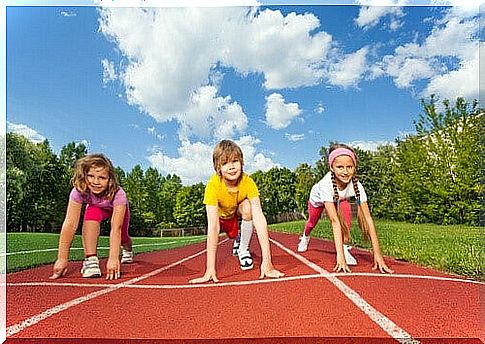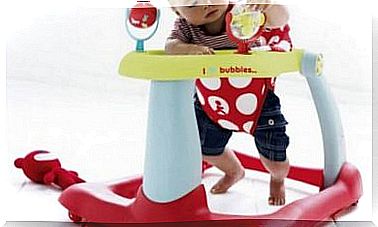Why Is It Important To Play Sports In Childhood?

Playing sports through childhood is an essential part of a child’s overall education, as physical and mental development go hand in hand. Therefore, sports contribute to the healthy growth of children.
Sport contributes much more than just entertainment to children. Doctors and psychologists confirm that children develop a better quality of life if they participate in sports.
The impact of playing sports in childhood lasts a lifetime. Children who acquire a habit of playing sports early in life will certainly keep it straight as they get older.
Playing sports can protect them from many health-related risk factors that are caused by an inactive lifestyle. It can also prevent diseases such as obesity and heart problems.
UNESCO and sports in childhood
According to UNESCO, playing sports in childhood is a vital human right. The organization emphasizes that children must have the opportunity to play sports without discrimination.
UNESCO suggests that governments and other organizations should promote actions in favor of sports for children.
Benefits of playing sports in childhood
- It promotes physical health, and prevents heart disease, diabetes, cancer and obesity.
- It stimulates the development of muscles and bones.
- The fact that it creates bonds with others is another advantage of playing sports. Sport teaches them to adapt to the social rules of the world outside the home.
- It stimulates the development of social skills. The child will learn how to accept other children, without social, cultural or economic discrimination. It also teaches them the importance of collaboration, to achieve results.

- It helps children overcome personal problems, such as being shy.
- Sport helps strengthen their self-esteem. Children learn the value they have and discover that their participation is important to the team.
- Sport also helps children away from an inactive lifestyle. It’s a great way for them to counteract the attraction they have towards technology, video games, mobile phones and computers.
- It is a good way to promote the inclusion of children with various disabilities.
- Sport contributes to the prevention of typical addictions during adolescence, such as drug, alcohol and smoking addiction. Furthermore, it prevents children from committing crime in the future.
- It helps stimulate creativity and problem solving.
- Sport teaches children to take responsibility, and the importance of implementing.
Sports according to a child’s age
As children grow, their bodies and minds will begin to experience different needs. This is an aspect that we need to take into account when deciding which sport to choose.
The opinion of the child is very important. The family can make a list of options that suit their financial opportunities, time and organization.
Once the list is complete, the child should be responsible for choosing the sport that attracts them the most.
- 3-5 years. Through these years, the sport they choose can have a large amount of activity. Children can learn many lessons through play. Therefore, the activity they choose should incorporate recreational components. Stories, scenes or special costumes can help stimulate the child’s ingenuity.
This is an appropriate stage for them to develop coordination and balance through sport. Three or four weeks a week of physical activity is recommended.
- 6–10 years. Through this stage, the child should be allowed to try several types of sports so that they can decide which sport they like best. Judo, karate, cycling, rhythmic gymnastics, tennis, football, basketball and volleyball, are all good opportunities.
When playing sports in childhood, it is important to eliminate competition. It is true that there should be a winner, but children should also be able to appreciate their sport by simple, recreational activity.

- Puberty and adolescence. This is a period where they will undergo radical changes physically, mentally and emotionally.
Sport will enable them to experience the optimal development of their personality. It will also strengthen their self-esteem, and help them get to know their body, through this stage of transformation.
If they have already played sports since childhood, in their youth they will be able to choose which sport they would like to dedicate more time to.
Safety when playing sports in childhood
It is important to contribute with the maximum safety precautions when a child practices sports. Safety refers to both physical safety and the people who are responsible for the activity itself.
Knowing the basic concepts surrounding sports, the physical conditions and the child’s exposure to risk factors will be able to prevent them from getting injured.









